News & Media
4IR deepening inequalities in South Africa
Speaking at Unisa’s Founders Lecture on 25 September 2019, Minister of Higher Education, Science and Technology, Dr Blade Nzimande, urged all South African universities to conduct research, teach and engage to facilitate transitions between society and the economy.
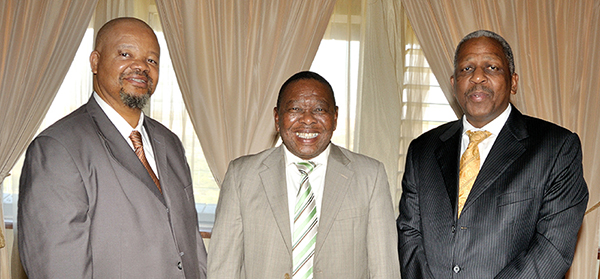
Prof Mandla Makhanya (Unisa Principal and Vice-Chancellor), Honourable Minister Dr Blade Nzimande (Minister of Higher Education, Science and Technology), Dr Mathews Phosa (South African politician and former Unisa Council member)
The lecture was entitled "The role of a transformative higher education in a developmental state and its response to the challenges and opportunities posed by the 4th Industrial Revolution".
Delivering his address, Dr Nzimande said the promises and perils of 4IR should bring perspective into both social and ecological imperatives for a more equitable and sustainable future. "In shaping the trajectory of this 4IR, we need knowledge and skills that will benefit the poor and working class," he said. "The first observation to make is that its loudest proponents talk about the 'new tech' mainly in optimistic terms, only focusing on its promises, not its perils, whereas the 'dark side' of the 4IR are not acknowledged."
Dr Nzimande said it is for this reason that he believes that debates about the nature and impact of technologies of 4IR must deal with the issue of how different social forces seek and harness appropriate benefits for its competing purposes.
First casualties in the banking sector
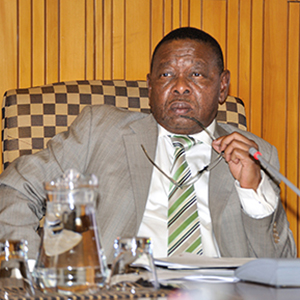
Dr Blade Nzimande (Minister of Higher Education, Science and Technology): "But what is our understanding of the 4IR, and how can we separate fact from fiction, and myth from reality, as we grapple with its potential implications?"
Referencing reports of an intended bank strike by organised labour, Dr Nzimande alarmed the audience regarding looming retrenchments threatening jobs of an estimated 40 000 employees. He said he firmly believes that penetration of the initial stages of 4IR in the banking sector is a serious disruption and that academics should be solution seekers in these kinds of problems. "What is and has been the response of academia?," he asked.
Nzimande continued to explain the impact of technology in the context of challenges faced in the country, and he said the 4IR debate is framed in the context of historically-specific conditions and the historic task of transforming economic and social order distorted by unsustainable inequalities expressed across class, ethnic, gender and spatial lines. "This in itself is a consequence of over three centuries of colonial-apartheid rule; in a word, the 'National Question'," he said. "If we remove the issue of social control, social purpose and benefits of broader society from the technology debates, we can end up with social outcomes that undermine our historical quest for a socially-just world."
The minister further said that we need to make sure 4IR does not further deepen inequalities we have in the country. "If one looks at social history, we have also seen the growth of social problems," he said. "Perhaps it is not about technology but rather about who controls it, and these are issues of global inequalities."
Whose interests are served?
According to the minister, dominant discourses on the 4IR tend to frame theories of change moving from so-called Society 3.0 to Society 4.0. This, he said, contradicts historic questions about social justice, radical equality and sustainable development, serious issues arise, from a progressive perspective. Said Dr Nzimande: "We have to ask questions such as: 'In whose interests is a particular technology strategy used? How does it offer opportunities to erase inequality and promote ecological sustainability? How do we empower the working people and poor of the world with the knowledge, skills and resources to improve their livelihoods, lives and planetary sustainability?'"
In conclusion, the minister said that we have to overcome or at least mitigate against the objective realities of the distance of SA from the dominant Western and Asia Pacific markets, with weak levels of integration into the highly under-developed African markets.
Universities must lead
"The Fourth Industrial Revolution in South Africa is not going away, not today, tomorrow or in future," said Prof Mandla Makhanya, Unisa Principal and Vice-Chancellor in his welcome address. "With job losses estimated to be over 2000, this is a catastrophe for those concerned. How prepared are we for a change that is upon us? As African universities with some reserves, we must surely be the vanguard of the necessary transformation. The world is changing and confusing as it is fully engaged in change and transformation. Academics need to be prepared to deal with transition as we don’t know what this world would look like."
The Founders Lecture was introduced at Unisa in 2003 to encourage the university and its stakeholders to focus on critical issues in higher education at both global and national levels. It is a dedicated space for intellectual enrichment - a space for sharing, learning and growing. Even today it remains a clear-cut commitment to intellectual engagement that broadens an understanding and appreciation of higher education and its issues nationally, continentally, and globally, and that contributes meaningfully to the body of knowledge that informs and shapes higher education practice and development.
* By Lesego Ravhudzulo, Journalist, Department of Institutional Advancement
Publish date: 2019-09-30 00:00:00.0


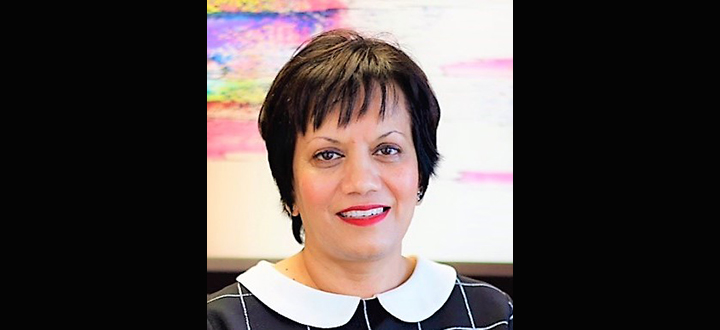 AI specialist to kick off Unisa’s Research and Innovation Week
AI specialist to kick off Unisa’s Research and Innovation Week
 How Medical Ethics and Health in Islam became a master’s journey for Rabia Mahomed
How Medical Ethics and Health in Islam became a master’s journey for Rabia Mahomed
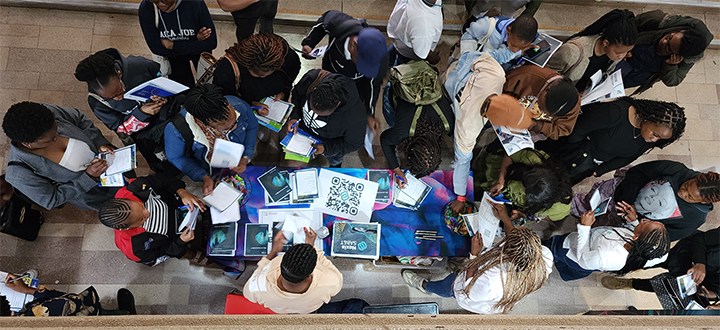 Employment boost for Unisa’s accounting students
Employment boost for Unisa’s accounting students
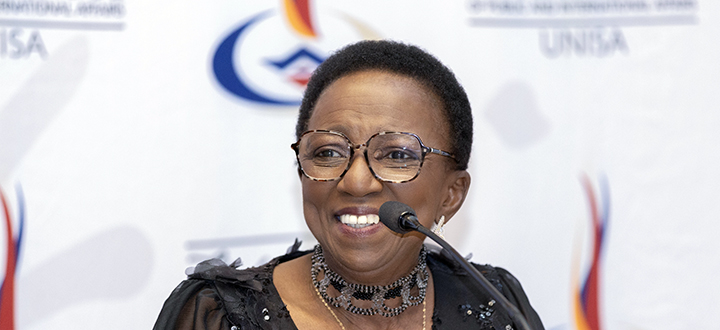 Life and legacy of Miriam Makeba celebrated at Unisa
Life and legacy of Miriam Makeba celebrated at Unisa
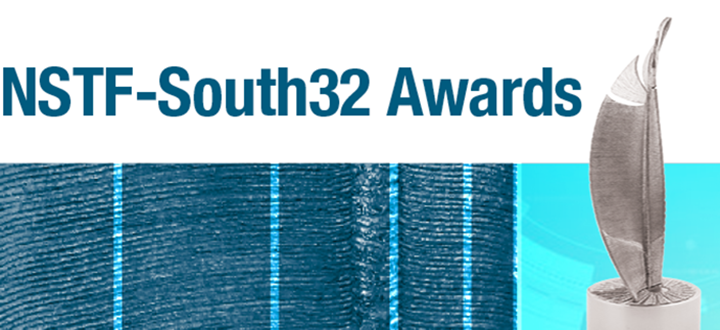 Unisa nominees gear up for the Science Oscars
Unisa nominees gear up for the Science Oscars